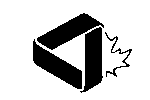Rethinking math thinking in secondary maths classes
Secondary mathematics courses face the dilemma of providing an active
and lively classroom experience for all students, while at the same
time preparing those whose vocation demands a more technical and
comprehensive background. Can our teaching go beyond the "basics"
(whatever these are) to provide an intellectual foundation that
includes sense of organization, structure, synthesis, strictness and
clarity, as well as astute judgment in selecting among competing
approaches, and the ability to think intuitively and rigorously? Can
we foster this in the face of an ideology that is narrowly
utilitarian? How can we encourage in the education of teachers a more
holistic view embracing these broader goals, and help them to transfer
these to their own classrooms? How can we train pre-service teachers
to a less procedural way of tackling and teaching mathematics?
Participants in this workshop should reflect on these issues, bring
their own experiences and perspectives and consider what changes in
curricula, local and provincial systems and even in social values and
attitudes might address them.
Repenser les mathématiques au secondaire
En classe de mathématiques au secondaire, lon est confronté au
dilemme de procurer à tous les élèves une expérience
dapprentissage vivante et stimulante, tout en assurant une formation
plus complète et technique à ceux dont la vocation lexige. Cet
enseignement peut-il aller au-delà des << bases >>
(quelquelles soient), et transmettre une véritable << formation
de lesprit >> qui incluerait : le sens de lorganisation, la
synthèse, la structure, la rigueur et la clarté, aussi bien que le
jugement qui permet un choix judicieux entre deux approches
divergentes, ou que lhabileté à diriger sa pensée par
lintuition et la déduction ? Comment le faire à contre-courant
dune idéologie étroitement utilitaire ? Comment ouvrir les
maîtres en formation à de tels objectifs, plus larges ?
Comment favoriser chez eux une approche moins procédurale, une
appréhension plus holistique des mathématiques ? Comment les
aider à mettre tout cela en uvre en classe ? Les participants
sont conviés à réfléchir à ces questions, à faire part de
leurs expériences et point de vue, à évaluer quels changements
dans les curriculums, les systèmes éducatifs locaux et
provinciaux, et mêmes les attitudes et valeurs sociales, sont
susceptibles dapporter des solutions.
Session 1: Edward Barbeau, Department of Mathematics, Toronto University
Title: Understanding, Power and Applicability
Modern society requires people with a broad range of mathematical
skills, from the citizen who must negotiate the demands of daily life
to the scientist on the frontlines of research. This cannot be achieved
by a `toolchest´ approach to education, where the emphasis is merely
on providing a lot of technical procedures. The modern student needs a
more holistic view of mathematics that involves a feeling for
structure, strategic thinking, astute judgment in selecting among
competing approaches, and the ability to think intuitively or
rigorously as required. Only in this way can the power of mathematics
be tapped. How can the curriculum meet these requirements, while being
accessible, meaningful and interesting to all students? How does this
bear on the expectations we have of teachers and developers of the
syllabus?
Session 2: Peter Taylor, Department of Mathematics and Statistics,
Queens University
For many years now we have all written passionately and eloquently
about mathematics education in the schools and why it most often seems
to fail. But little changes and one wonders if we are wasting our
time. A common view is that the biggest culprit is the overstuffed
curriculum. It is clearly not enough simply to recognize this problem
and resolve to do something about it. The group who recently wrote
the policy document for the new Ontario curriculum were all agreed on
this, and yet somehow it (or someone else) produced a list of topics
that is far too heavy for all but the most able students, at least if
understanding and independence are to be thought of as reasonable
goals. So we have to dig more deeply and understand why this keeps
happening. I believe that the problem ultimately has to do with our
conviction that mathematics can only be taught in a systematic manner,
that if we are teaching calculus, we of course have to do this and
this and this... It is true that mathematics is a systematic and
hierarchical discipline and much of its beauty and power derives from
this structure, but do most students learn in this manner? In being
systematic, we might serve the subject, but do we serve the student?
And if not, can we really serve the subject? In this working group we
will pursue these questions.
Session 3: Denis Tanguay: Département de mathématiques, UQAM
Titre : Déployer un raisonnement en mathématiques : comment
développer cette compétence chez les enseignants du secondaire en formation
Le nouveau programme détudes secondaires du Ministère de
léducation du Québec fait de la compétence << déployer un
raisonnement en mathématiques >> une parmi trois compétences
fondamentales. Cela renvoie aux difficultés quéprouvent les
enseignants en formation face à la preuve, entre autres les
difficultés dordres logique (départager la thèse des
hypothèses, ne pas utiliser la thèse comme argument,
différencier une implication de sa réciproque, comprendre le
statut de lexemple et du contre-exemple, etc.) et les difficultés
dordre sémantico-langagier (distinguer les définitions formelles
des descriptions informelles, des conceptions intuitives, des
significations méta ou extra-mathématiques véhiculées par le
terme défini, comprendre et repérer les quantifications
implicites, etc.). Des questions se posent alors à légard de la
démonstration (la preuve formelle) : peut-elle ou doit-elle faire
lobjet dun enseignement spécifique ? Est-il possible de donner
accès aux savoirs de logique formelle sous-jacents sans
discréditer dautres formes de discours comme largumentation ou
lexplication, sans inhiber chez létudiant ses capacités à
recourir à lintuition, aux associations, aux métaphores, sans
faire de la démonstration lunique but à atteindre en
mathématiques, plutôt quun outil privilégié de validation
permettant une meilleure appréhension du sens?



